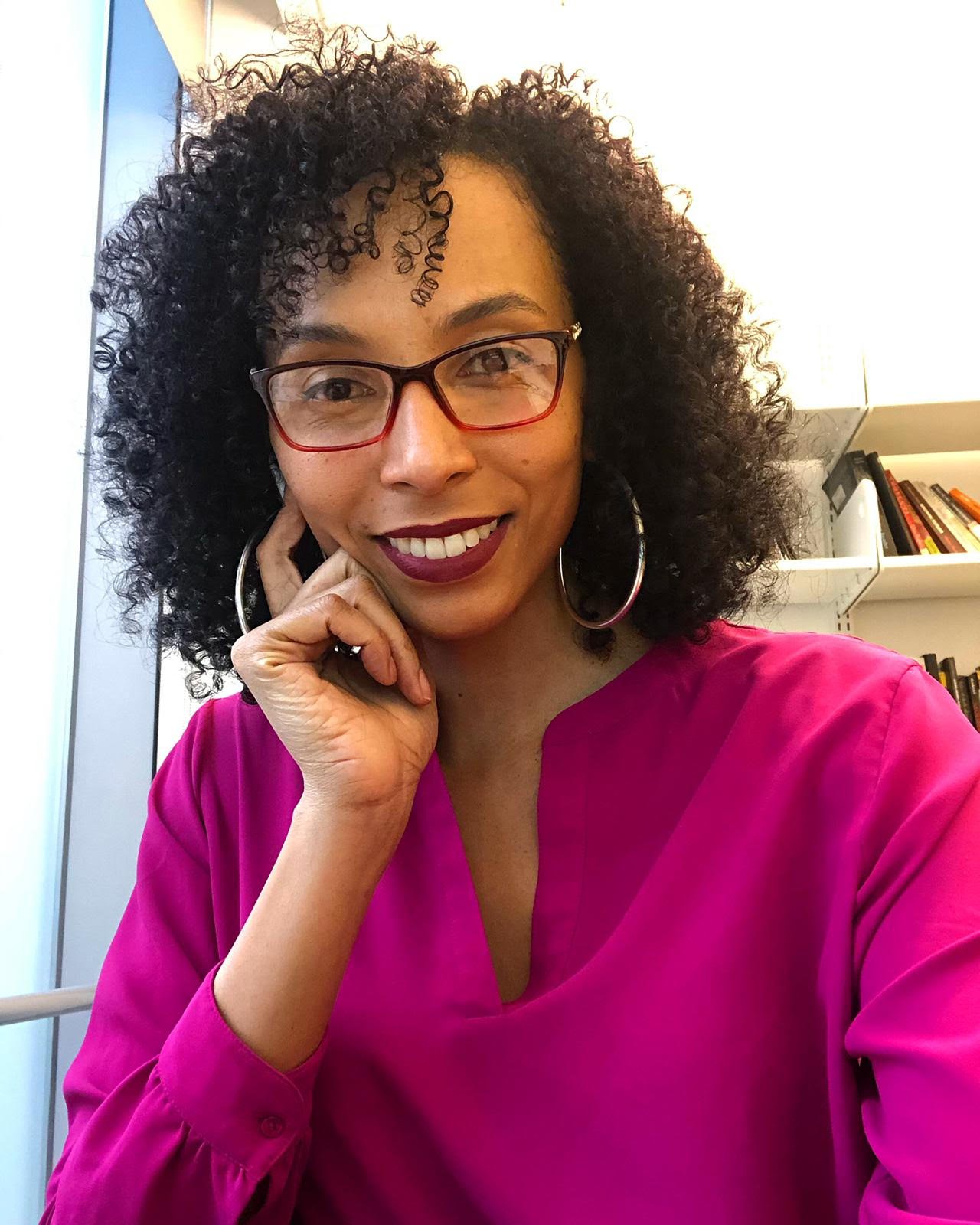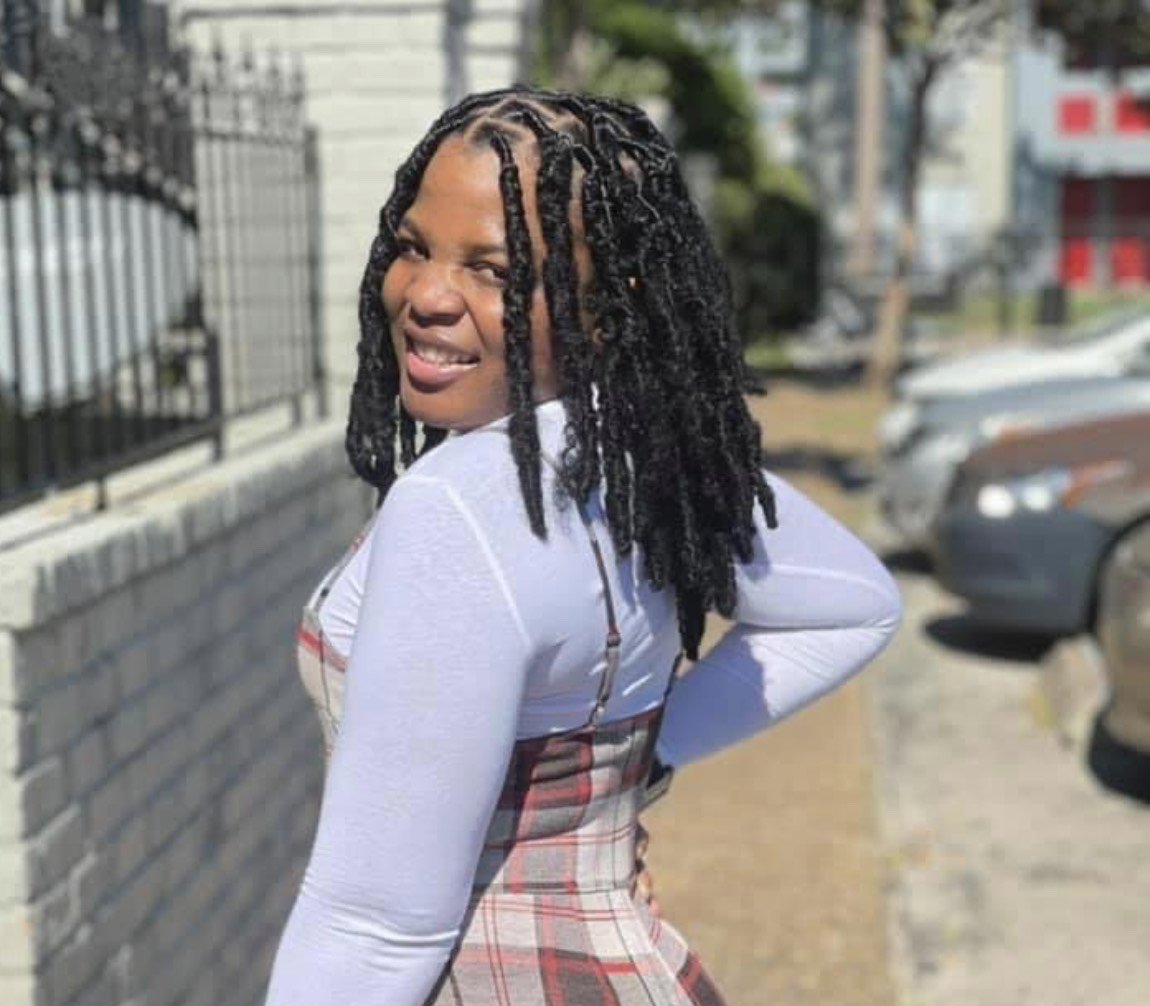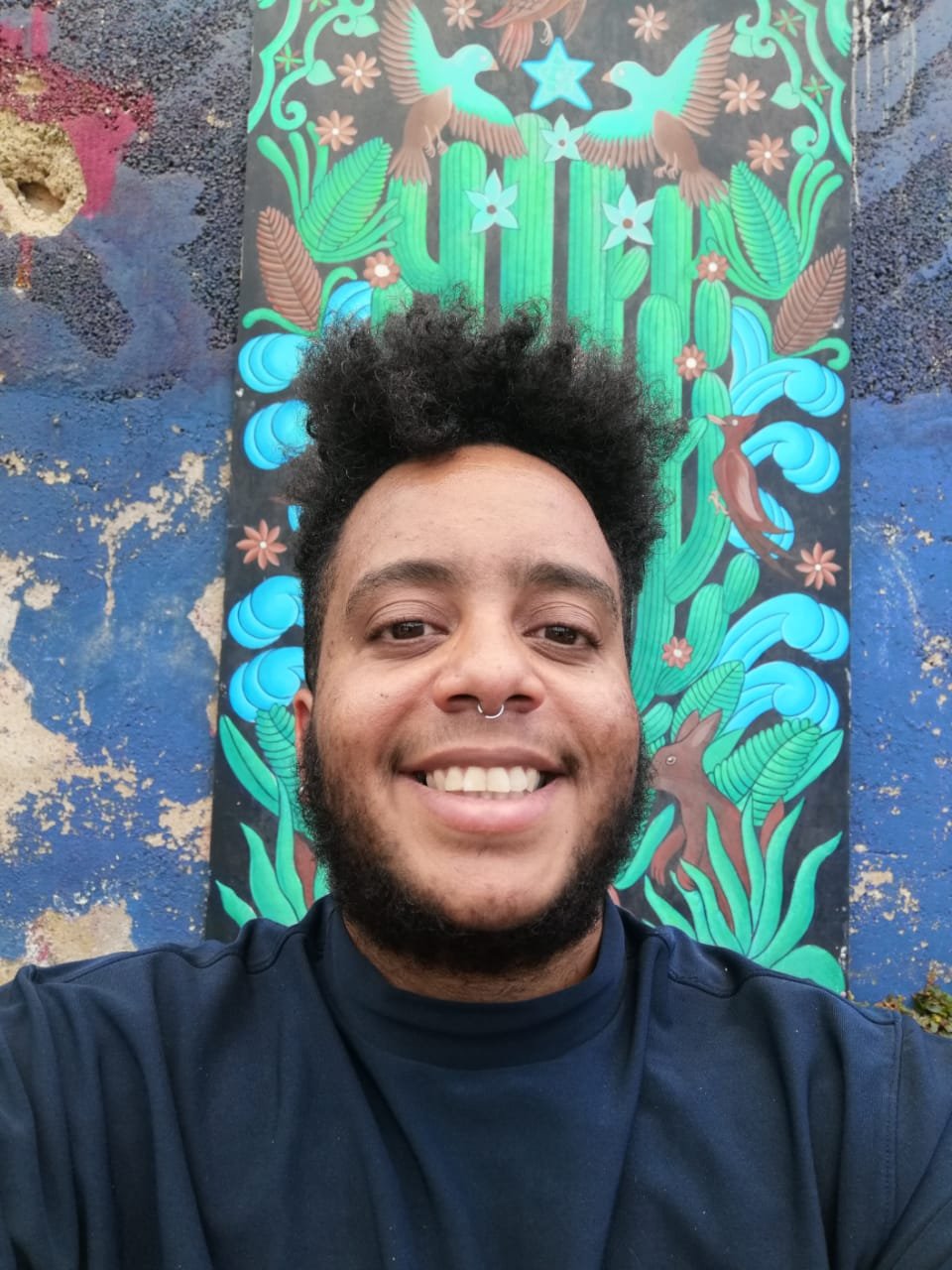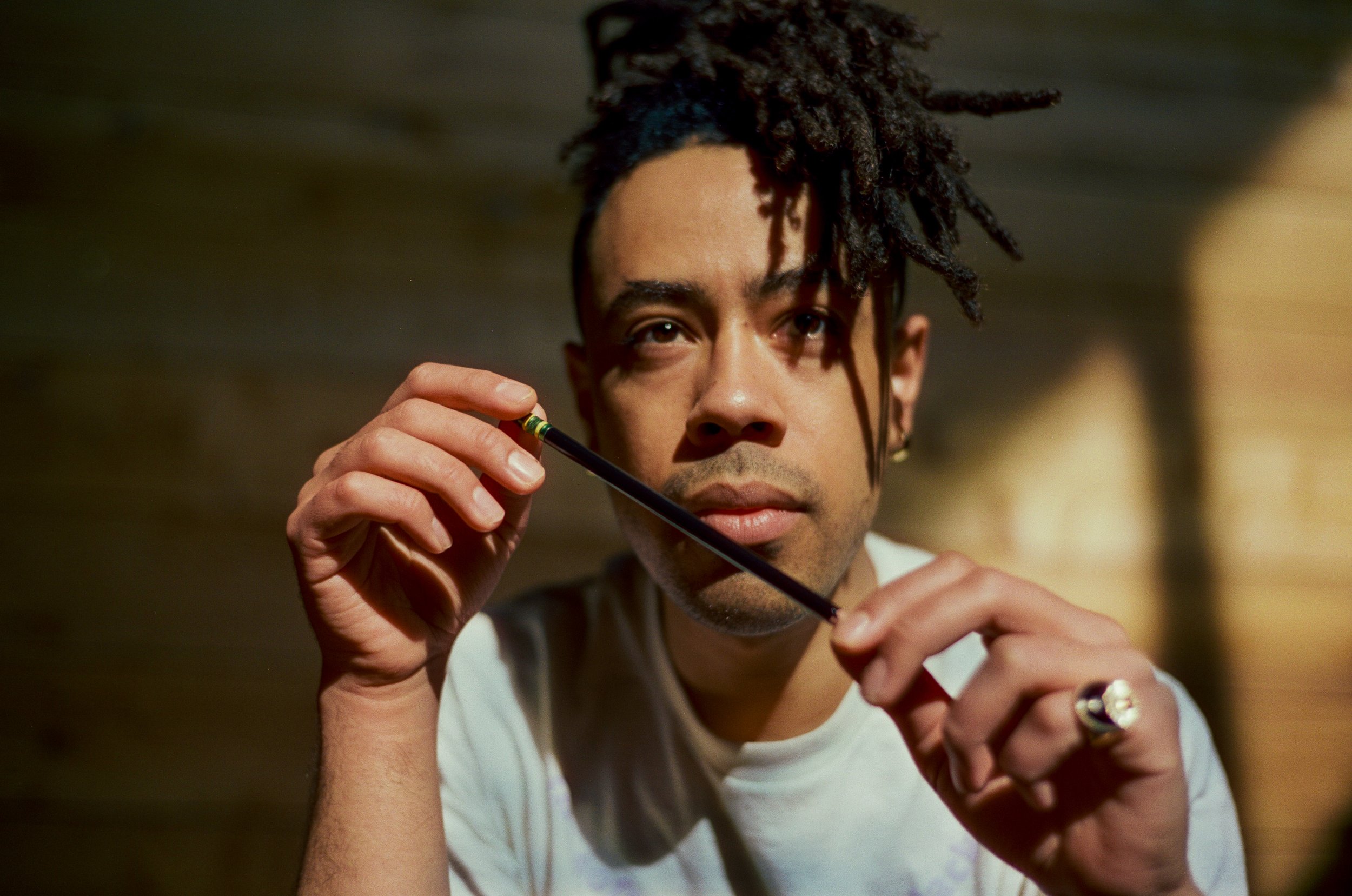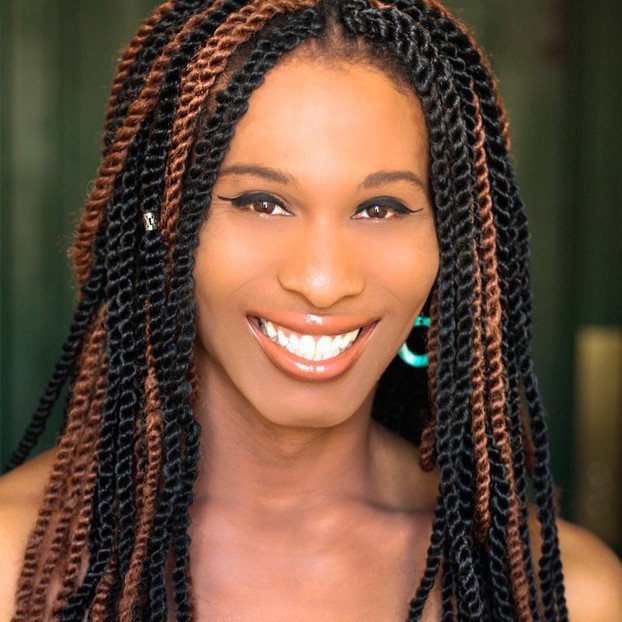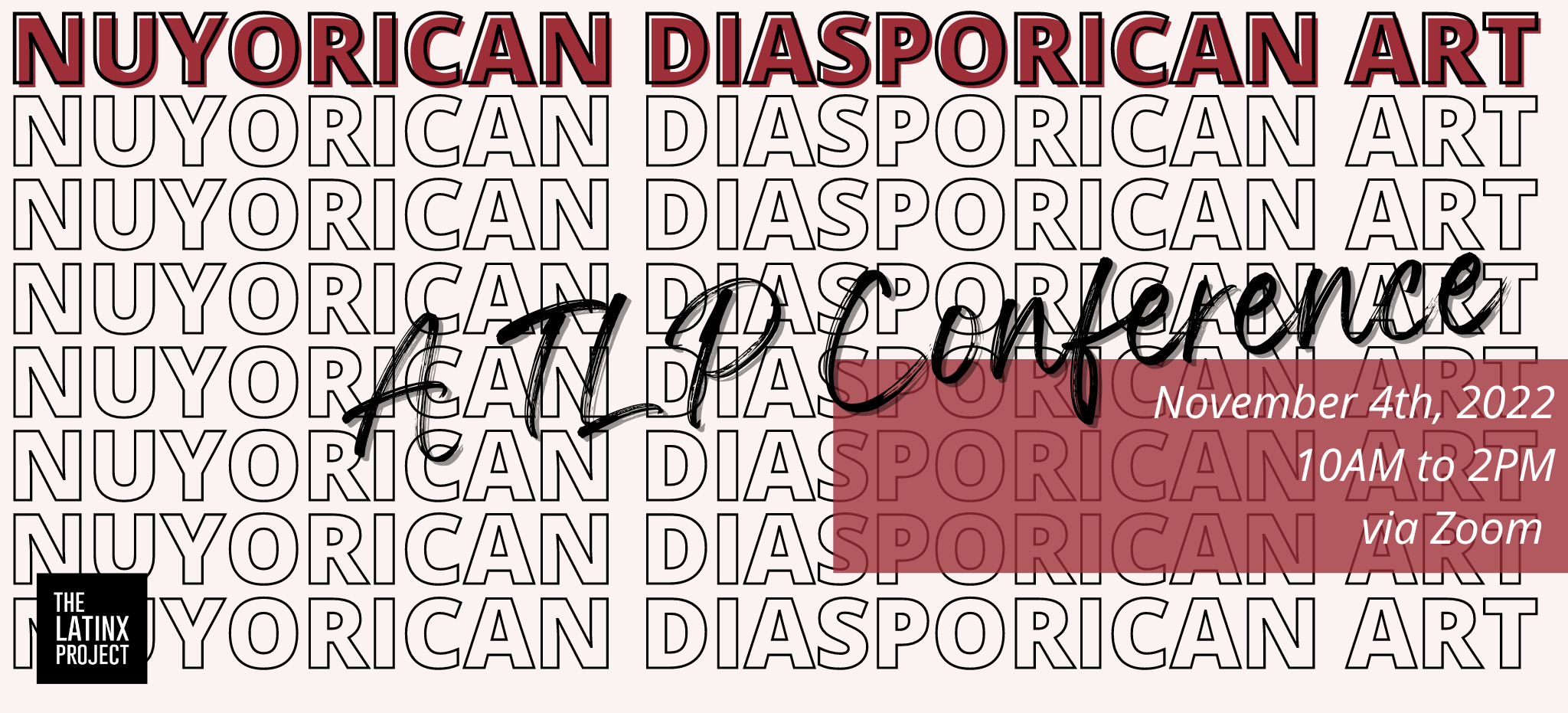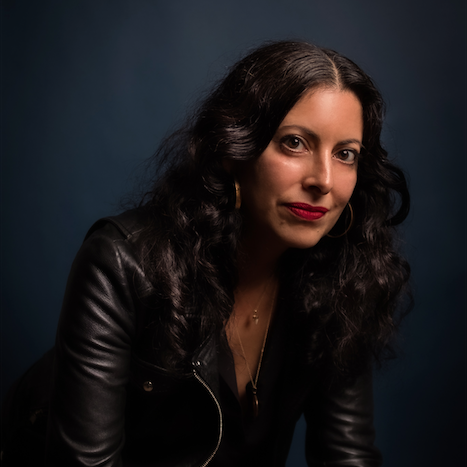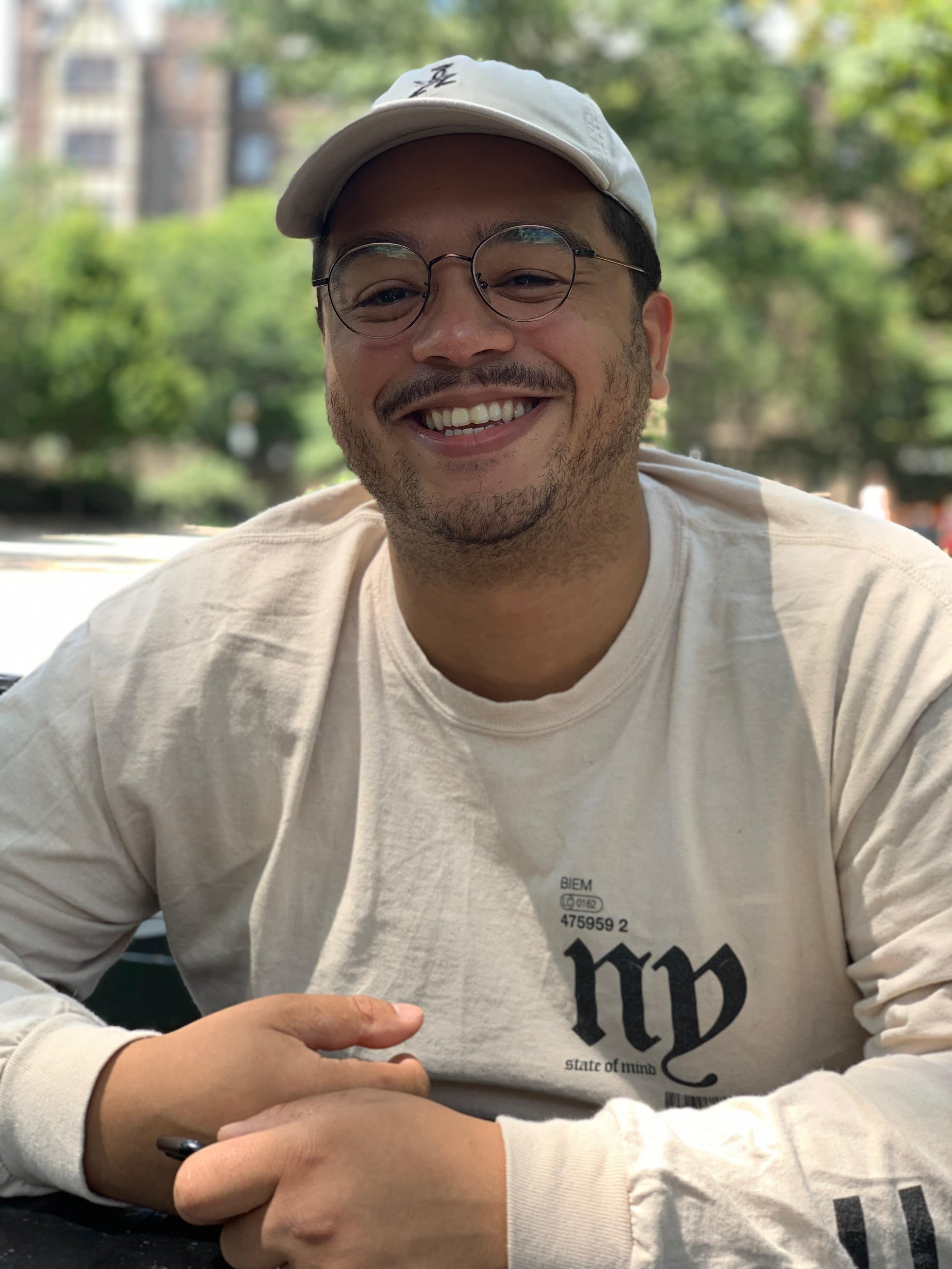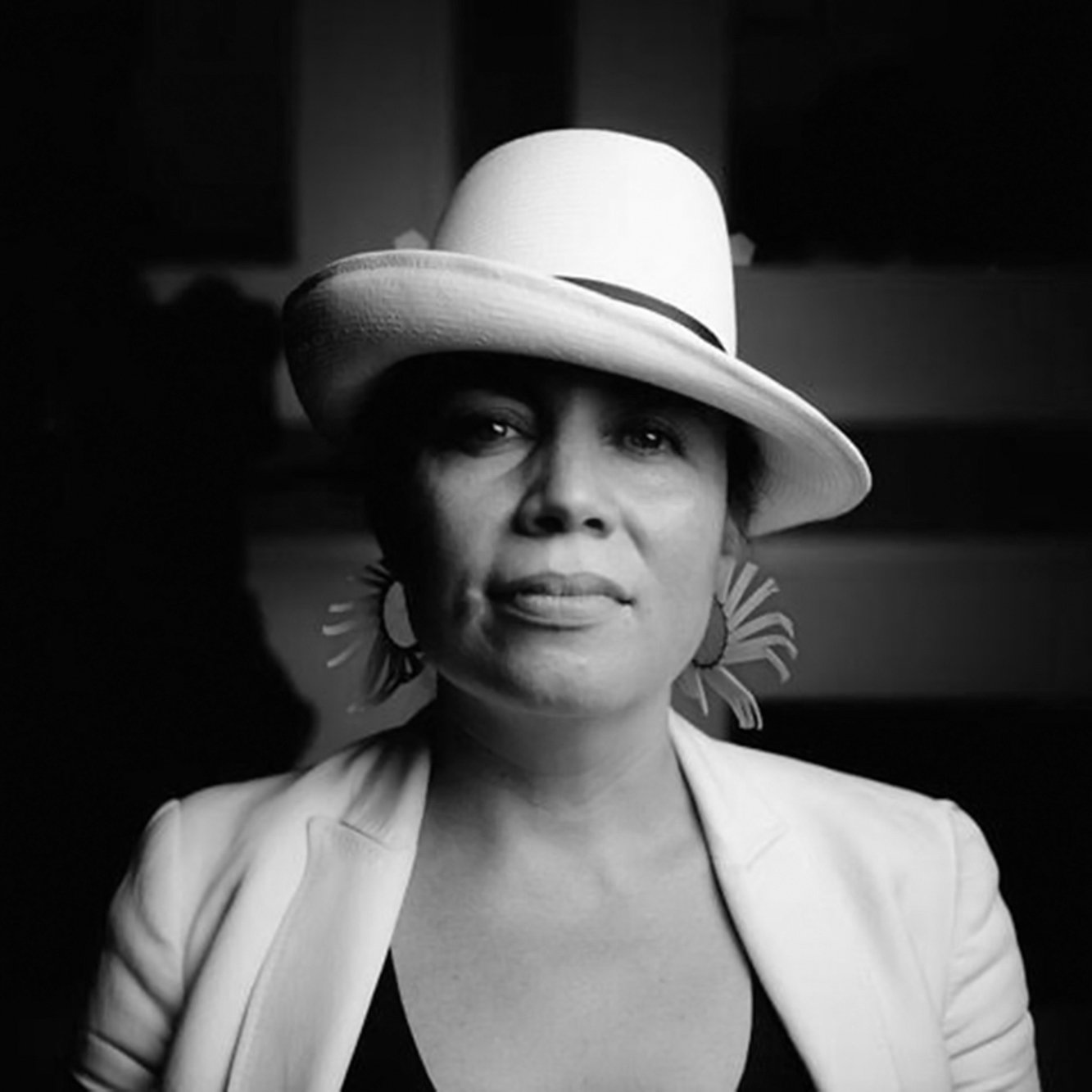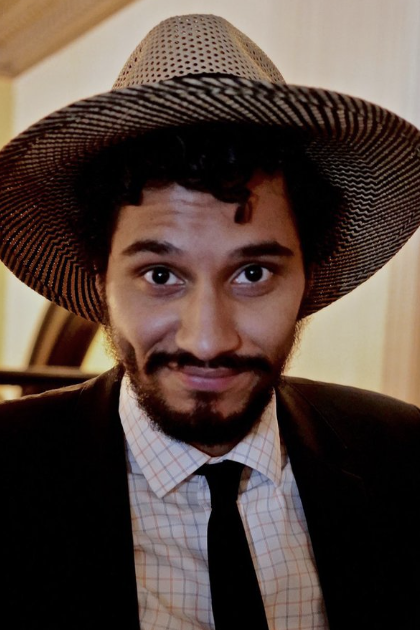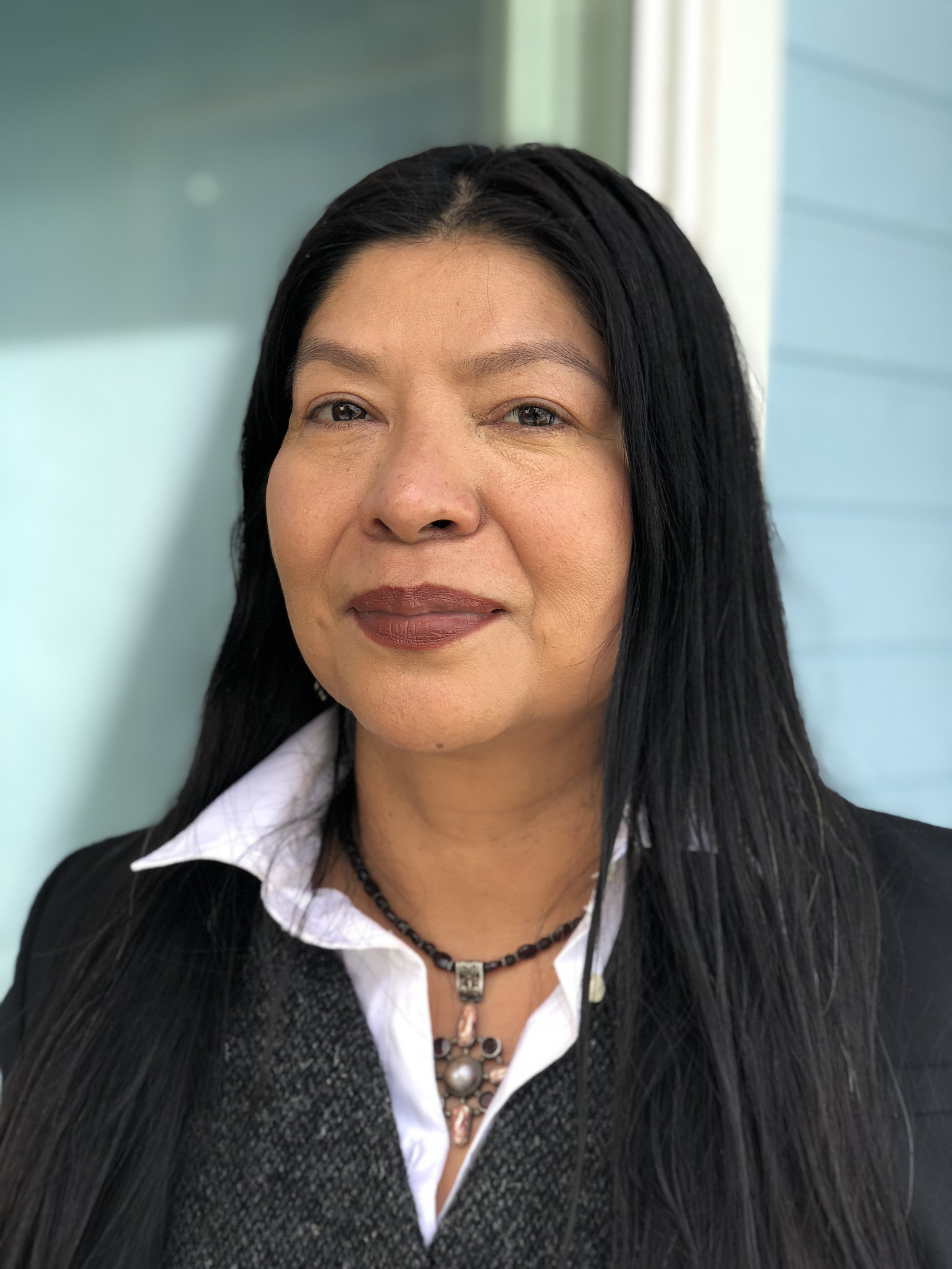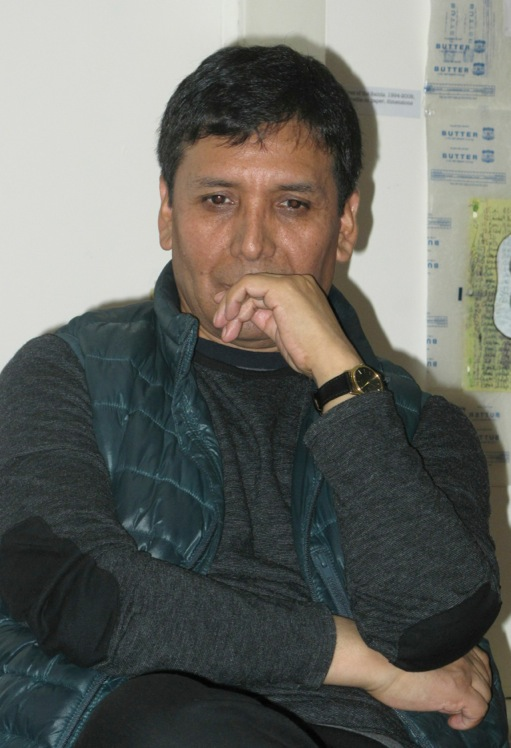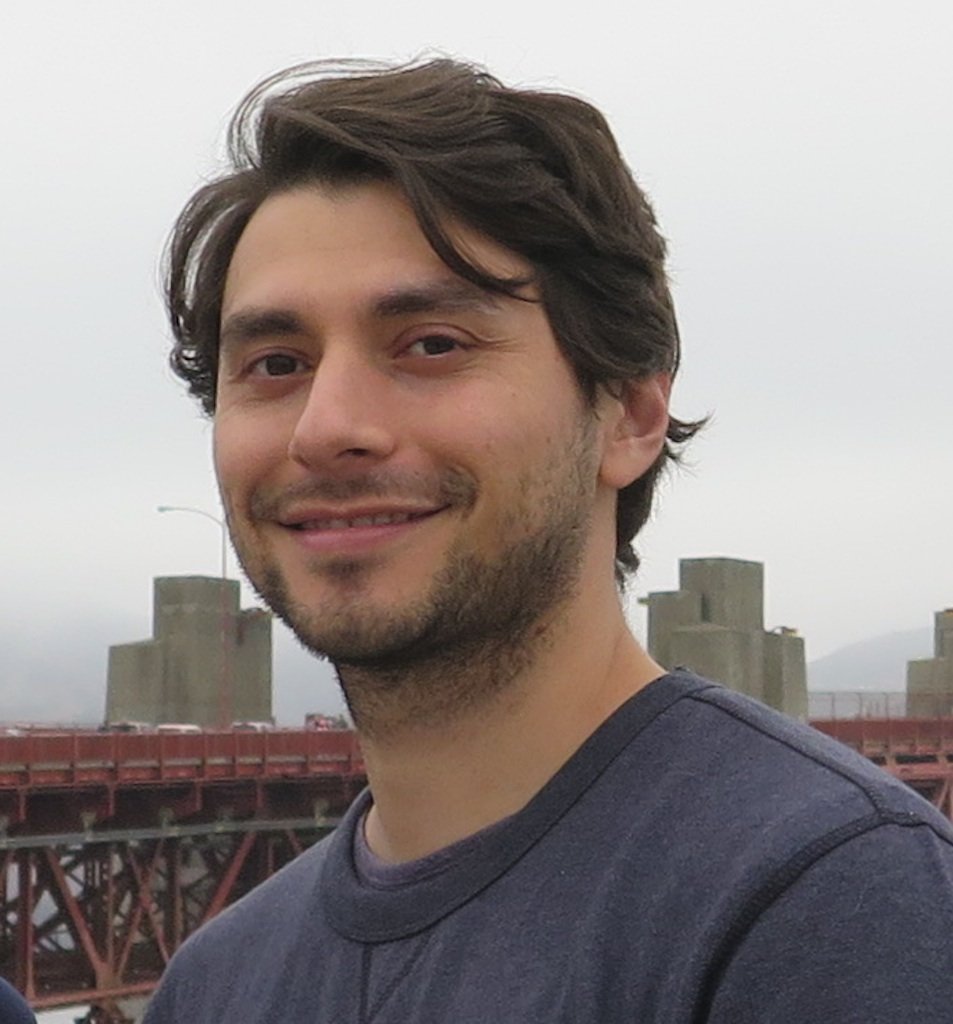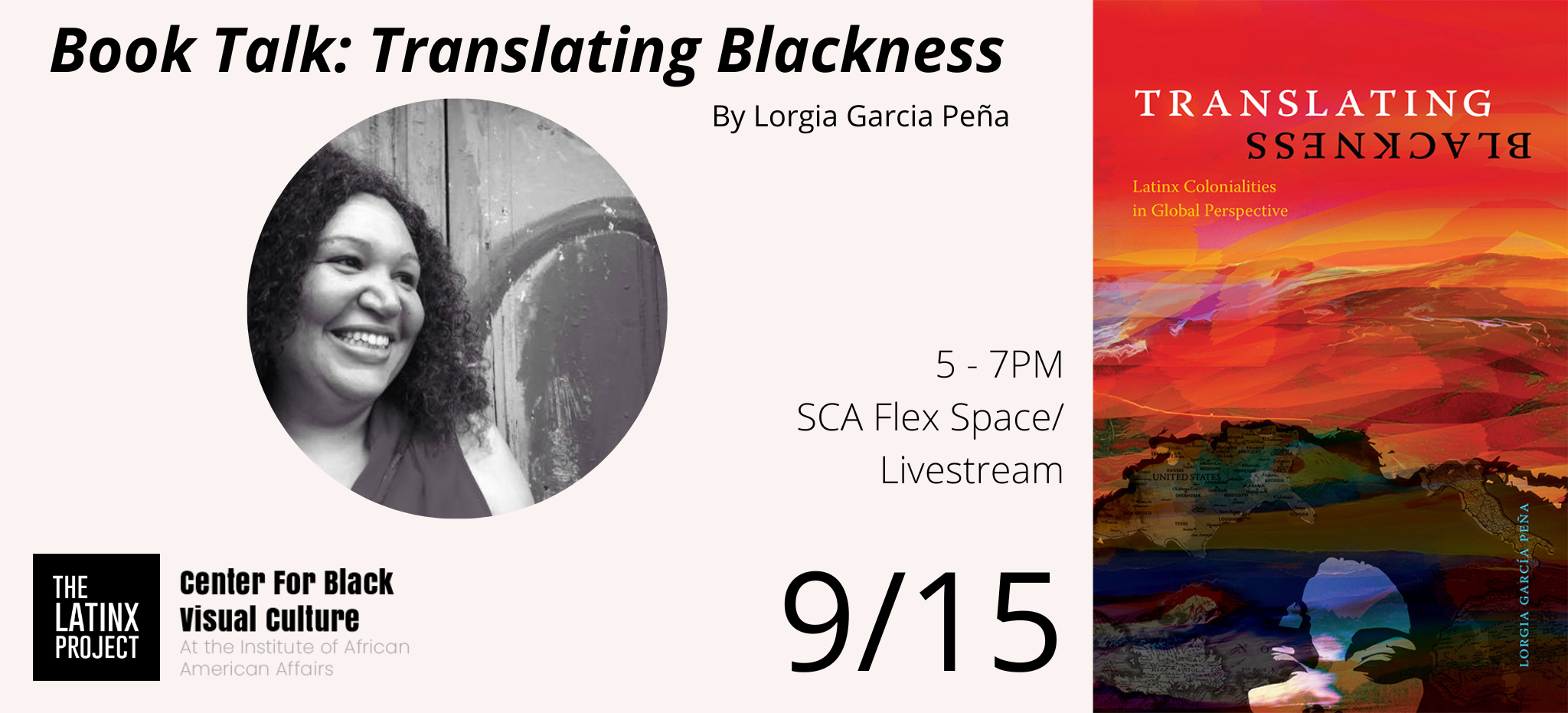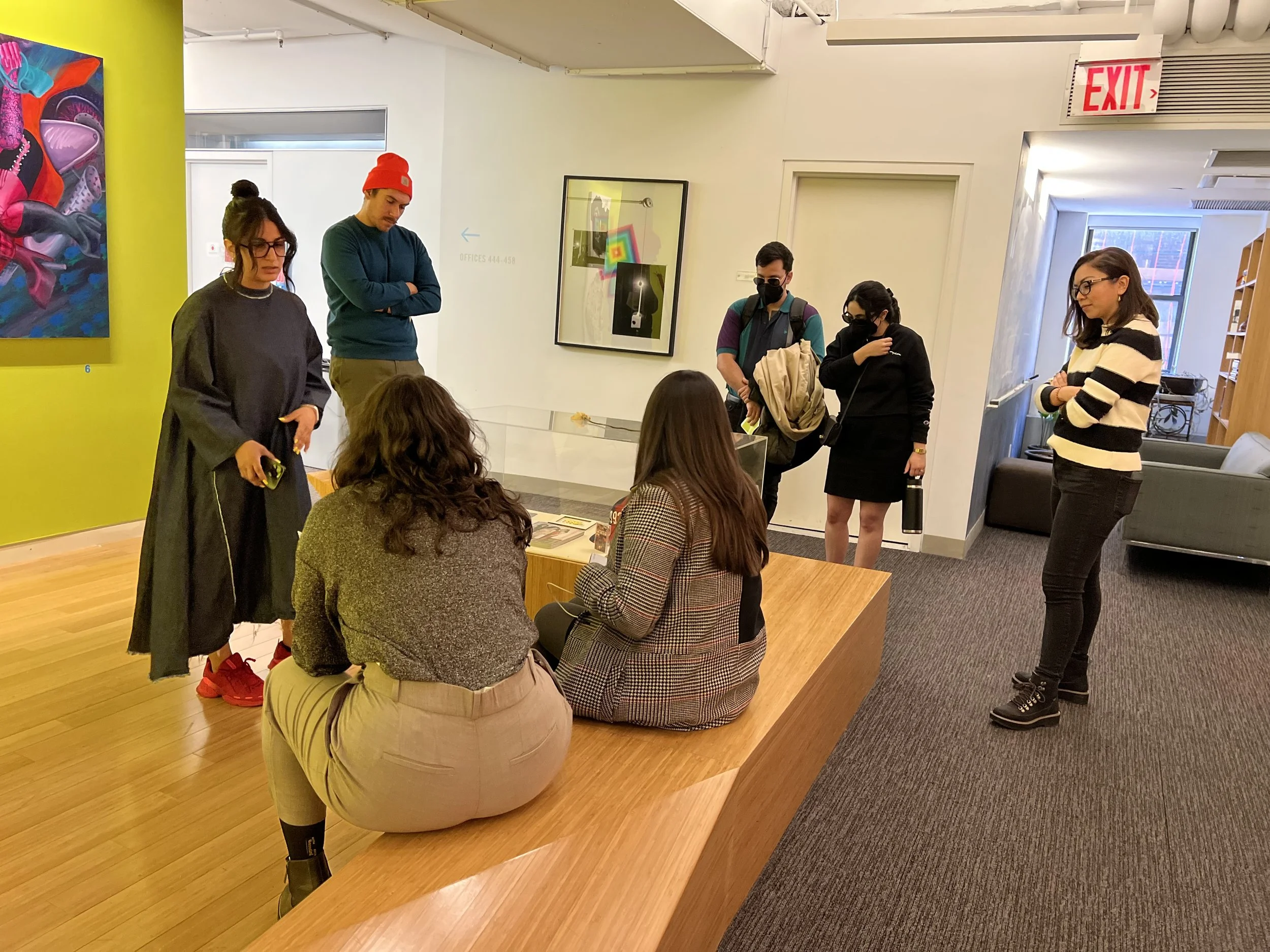
Estilazo Closing Open House
Please join us for a closing open house of Dulcina’s, Curator-in-Residence, exhibition Estilazo. Come celebrate the amazing artists in the show and get one last look at the featured art works. Sweets, tea and coffee will be provided.

Transing Afro-Latinx Studies and Identity
Transitioning, following the theoretical work of Dora Silva Santana, “is our movement along that space of possibilities that produces embodied knowledge. It is moving across and along the waters, the imposed limits of gender” (2017: 183). Transitioning, then, can be understood as a continual practice of improvisation, imagination, discovery, and movement. Afro-Latinx studies, as an emergent field, takes up the key analytics of race, ethnicity, Indigeneity, culture, colonialism and migration. In a way, Afro-Latinx studies has transed Latinx studies but what might it mean to trans Afro-Latinx studies by focusing on transgender epistemologies, embodiments, and transgender acts of improvisation and imagination? This conversation gathers trans* Afro-Latinx scholars and activists to address the following questions: How does transitioning inform, nuance, expand, or critique Afro-Latinx studies and/or Afro-Latinx identity? And, what types of transitions do Afro-Latinx communities need to take in order for trans Afro-Latinx kin to live gloriously?
If you have any accessibility needs for this event, please email us at latinxproject@nyu.edu.
Participants
Dr. Dora Santana is a black Brazilian trans woman artist and scholar. She is an Assistant Professor of the Gender Studies Program at John Jay College– CUNY. Her work has been published on the Transgender Studies Quarterly – TSQ – The Issue of Blackness under the title “Transitionings and Returnings: Experiments with the Poetics of Transatlantic Water,” and the TSQ Issue Trans in Las Americas, whose title is “Mais Viva! Reassembling transness, blackness and feminism.” To learn more about her work, visit https://dorasantana.academia.edu/research#papers.
Aneiry L. Zapata is a Black Garífuna and Honduran transgender woman who arrived in the United States in 2015 fleeing the repressions of her country. She has experience helping LGBTQIA+ migrant and connecting them Black with any resource they need to survive. Aneiry has participated in protest and in many conferences as speaker and has testified in court fighting for the rights of LGBTQIA+, Black folks and any individual who identifies as a woman. Currently leading the Garifuna community in main programs: Charlas Garifunas LGBTQ+, GarifunaTransTalk and GarifunaKids lives matter. Her goal is to help create a world where our gender and sexuality are free to be lived and expressed freely.
Tito Mitjans Alayón has a doctorate in Feminist Studies and Intervention at UNICACH, Chiapas, Mexico. Mitjans Alayón is an Afro-Cuban feminist activistx, non-binary, fantastically fat, Trans masculine historian whose research areas include Black Feminism, Queer and Trans Afro-diasporic Studies, and Critical Studies of the Black Atlantic.
Alan Pelaez Lopez is an interdisciplinary writer, visual artist, and theorist from Oaxaca, México. In their poetic and visual work, Alan attends to questions of Black futures, trans* kinship, and Indigenous (un)belonging. They are the author of Intergalactic Travels: poems from a fugitive alien (The Operating System, 2020), a finalist for the International Latino Book Award, and to love and mourn in the age of displacement (Nomadic Press, 2020). Their writing is published in Teen Vogue, Refinery29, Best American Experimental Writing, the Georgia Review, and others. When they are not writing, Alan spendsmuch of their time organizing with queer and trans* migrants impacted by prisons and immigrant detention, sending out letters to loved ones, and making phone calls to Oaxaca. Alan is an assistant professor of queer and trans* ethnic studies at San Francisco State University.
Lady Dane Figueroa Edidi is a Black Nigerian, Cuban, Indigenous, American Performance Artist, Author, Educator, a Helen Hayes Award winning Playwright (Klytmnestra: An Epic Slam Poem), a 2021 Helen Merrill Award Winner, Advocate, Dramaturg, a 2x Helen Hayes Award Nominated choreographer (2016, 2018) and co-editor/co-founder of the Black Trans Prayer Book. She is the curator and associate producer of Long Wharf Theatre’s Black Trans Women At The Center: An Evening of Short Plays, as well as an artistic ensemble member of the theater. She wrote episode 1 of Untitled Mockumentary Project and acted on the series as well, and wrote episode 9 (Refuge) of Round House Theater’s web series Homebound. She was recently featured as Dr. Grace Grace in the webseries I Need Space. She also narrated The Netflix docuseries Visions of Us.
Event Recap

Self-Archiving as Resistance: Latinx Club Kids weaving New York History through the lens of Fashion and Urban interventions
Join curator Dulcina Abreu, and artists Juan Arango Palacios, Angel Anazco and Oscar Sanchez for a panel discussion exploring methodologies of self-archiving and its radical impact on their artistic practices. Moderated by Chicago born writer of Dominican descent Isabelia Herrera, the multidisciplinary artists and organizers will have the opportunity to expand on their experiences documenting public history as an act of resistance, and preserving collective memory of their communities. If you have any accessibility needs for this event, please email us at latinxproject@nyu.edu.
Participants
Angel Añazco is an artist and performer who develops narratives of subjects with aplomb, centering queer, trans, and non-conforming people of color. Her styling conveys a resplendency that draws a connection between panache and preservation, imploring the significance of inclusion and equitable representation. Angel’s work celebrates the nuances of identity at the intersection of race, gender, and culture. She believes in using tools such as photography, performance through modeling, and painting to further expand on her purpose and mission for accurate representation. Accurate representation and autonomy over their image is at the core of her practice with the purpose of taking control of her narrative instead of being appropriated by the mainstream. Angel received her BFA from Parsons the New School for Design in 2017. Raised between Ecuador and the U.S. she currently lives and works in Brooklyn, New York. Clients include TIME, Allure, Highsnobiety, The Fader, Smashbox Cosmetics, Paper Magazine, Milk Makeup, Document Journal, and V Magazine
Juan Arango Palacios: As a queer body that was raised in a post-colonial context in Colombia, my identity was shaped in the shadows of North American normativity. My sense of self was further confounded by a series of migrations that my family experienced in search of work and a more prosperous future. Moving through varying homophobic and misogynistic cultures in Louisiana and Texas, I have formed a disembodied identity that is not attached to any specific homeland and has always been challenged by the general norm. My practice works towards addressing the lived experiences of ambulant queer identities that have been marginalized within a diasporic or migratory context. Through the fluid and boundless medium of paint, I have been able to represent memories, places, people, and archetypes that I associate with the safety, survival, and endurance of queer bodies in spaces that challenge their existence. Also, through the process of weaving, I am producing narrative objects that aim at expressing the stories of individuals within a similar context. Placing emphasis on color and composition, my work aims at creating images glorifying and fantasizing the idea of safety in a queer experience.
Oscar Sanchez is a creative based in NYC. They have worked as a creative brand consultant for Awake NY. They previously worked with 1992 THE PARTY as a cofounder, graphic designer, and creative director. They earned a bachelor’s in graphic design from Queens College in 2020.
Isabelia Herrera: Born in Chicago and raised there by Dominican parents, Isabelia Herrera is a critic now based in Brooklyn. She holds a bachelor’s degree from Barnard College and a master’s degree from New York University in Latin American and Caribbean studies. Her writing focuses on popular music and culture, particularly music of the Caribbean diaspora. In January 2017, she was named on the Forbes 30 Under 30 Media List. Her work has appeared in The New York Times, Pitchfork, GQ, Rolling Stone, Billboard and more. She loves nail art, good books and the rave.
Dulcina Abreu is a Dominican-born independent curator, artist, and museum advocate currently based in Baltimore, MD. She graduated with a MFA in Curatorial Practice from the Maryland Institute College of Art, focused on digital platforms and a BFA in Fine Arts and Media from Parsons, The New School. Prior to living in New York, Dulcina studied at The National School of Visual Arts and Altos de Chavon School of Design, both in the Dominican Republic. Abreu’s work explores 21st century visual and material culture from the Caribbean Diaspora in the US, immigration, community organizing, mutactivism. She serves as the Consulting Curator for the September 11th,2001: An Evolving Legacy project at the National Museum of American History; Co-founder of the International Coalition of Museum Professionals and Communities alongside Armando Perla. Abreu currently manages the NYC Latino 9-11 collecting initiative and NYC Latino COVID-19 project which aims to expand the national narrative with Latino/a new yorker stories and material culture.
Event Recap

Nuyorican/Diasporican Art Conference
This one-day conference will take place virtually and feature panel presentations addressing the dearth of critical scholarship on Nuyorican and DiaspoRican visual art through a decolonial and inclusive lens, in anticipation of a forthcoming collection of essays to be published in 2023.
Click here to download a PDF of the full conference program.
If you have any accessibility needs for this event, please email us at latinxproject@nyu.edu.
Participants
Arlene Dávila, PhD is a Professor of Anthropology and American Studies at New York University, and a recognized public intellectual focusing on questions of cultural equity, Latinx and critical race studies. She is the author of multiple books focusing on Latinx cultural politics spanning the media, urban politics, museums and contemporary art markets. Her latest book: Latinx Art: Artists, Markets and Politics (Duke Press 2020) was selected as one of the best art books of 2020 by the New York Times and ARTnews, and a favorite book by Smithsonian scholars and Artnet News. She is also the founding director of The Latinx Project, an interdisciplinary space focusing on Latinx art and culture and hosting artists and curatorial projects at NYU.
Yasmin Ramirez, PhD is an art worker, curator, and writer based in New York City. She holds a Ph.D. in Art History from the Graduate Center, CUNY. Born in Brooklyn, Ramirez was active in the downtown art scene of the early 1980s as a club kid and art critic for the East Village Eye. Attracted to street art and hip hop, she became acquainted with emerging artists and writers, many of whom are now icons of the 1980s. Currently an independent curator, Dr. Ramirez has collaborated on curatorial projects with The Bronx Museum, El Museo Del Barrio, The Loisaida Center, The New Museum, The Studio Museum in Harlem, Franklin Furnace, and Taller Boricua. Her critically acclaimed exhibitions and panels include: Pasado y Present: Art after the Young Lords, 1969-2019 (2019); Home, Memory, and Future (2016); Martin Wong: Human Instamatic (2015); ¡Presente!: The Young Lords in New York (2015); The Puerto Rican Art Workers and the Construction of the Nuyorican Art Movement (2014); Re-Membering Loisaida: On Archiving and the Lure of the Retro Lens (2009); “Esto A Veces Tiene Nombre": Latin@ Art Collectives in a Post-Movement Millennium (2008); The Boricua in Basquiat (2005); Voices From Our Communities: Perspectives on a Decade of Collecting at El Museo del Barrio (2000); Pressing the Point: Parallel Expressions in the Graphic Arts of the Chicano and Puerto Rican Movements (1999).
Néstor David Pastor is a writer, editor, cultural worker, and translator born and raised in Queens, NY. He is the founding editor of Huellas, a bilingual magazine of longform writing by emerging writers with roots in Abya Yala. He holds a BA from SUNY Binghamton in English and Hispanic Literature and an MA from CUNY Queens College in Spanish Language and Literature. Currently, he is the editor of Intervenxions, a digital publication of The Latinx Project focusing on Latinx arts, culture, and politics. His writing has been published in NACLA, OkayAfrica, Remezcla, Latino USA, Radio Ambulante, The Nation, and Feet in 2 Worlds, among others. His translation work includes the book Political Solidarity Economy by Jorge Santiago and a host of clients, including NPR’s Storycorps. Past collaborations include work with the Afro-Latino Festival of New York City, the Philadelphia Latino Film Festival, and the Loisaida Festival.
About the Authors
Joseph Cáceres is a queer Puerto Rican writer from the South Bronx whose work has been published in Slice magazine, Cosmonauts Avenue, CURA, and Emerge: 2019 Lambda Fellows Anthology. An alumnus of the Yale Writers’ Workshop, Joseph is also the recipient of the Bronx Council of the Arts’ Bronx Recognizes Its Own (BRIO) Grant for Fiction, and LAMBDA Literary Writers Residency for Emerging LGBTQ Voices. As a second-year student in the English PhD program at the CUNY Graduate Center, Joseph studies queer American artists of African and Caribbean descent. He is the recipient of CUNY’s Lost & Found Archival Research Grant, and is currently working with the Nuyorican Poets Cafe Founders Archive Project on several projects revolving around the Cafe's queer founders.
Arnaldo M. Cruz-Malavé is professor of Spanish and comparative literature and associate director of the Institute of Latin American and Latinx Studies at Fordham University. He is the author of Queer Latino Testimonio, Keith Haring, and Juanito Xtravaganza: Hard Tails (Palgrave, 2007), a book about the testimonial genre and the relationship between the queer high art of Keith Haring and the popular Latinx street art of graffiti writers in the gentrifying New York of the 1980s. He is editor of the short stories of New York Puerto Rican queer writer Manuel Ramos Otero: Cuentos (casi) completos (Havana: Casa de las Américas, 2019), and coeditor, with Martin Manalansan, of Queer Globalization: Citizenship and the Afterlife of Colonialism (NYU, 2002). His essays on New York Latinx literature and art have appeared in anthologies such as Entiendes? Queer Readings/Hispanic Writings (Duke UP, 1995), Sex and Sexuality in Latin America (NYU, 1997), and Queer Representations (NYU, 1997), and in journals such as Small Axe, GLQ, e-misférica, Revista Iberoamericana, ARTMargins, differences, Revista de Crítica Cultural, Cuban Studies, and Centro: The Journal of the Center for Puerto Rican Studies. He has been visiting professor at Harvard, the recipient of the NEH and the Ford Foundation fellowships, and a former member of the Board of Directors of Center for Lesbian and Gay Studies of CUNY’s Graduate Center and Fordham University Press. He is on the Editorial Board of Centro: The Journal of the Center for Puerto Rican Studies. He recently curated, with Gregory de Silva, The Magic of Everyday Life: The Queer Translocal Photography of Luis Carle at Rutgers University’s Paul Robeson Galleries in Newark, New Jersey.
Kerry Doran is a writer and curator, and a regular contributor to exhibition catalogs, artist books, and independent publications. Her curatorial projects have been featured in Artforum, ARTnews, Modern Painters, The New York Times, Rhizome, and The Village Voice, among others. She holds an MA from the Courtauld Institute of Art and is currently an PhD candidate at the CUNY Graduate Center.
Elizabeth Ferrer is a curator and writer specializing in Latino and Mexican art and photography. She is also the chief curator of contemporary art at BRIC. Ferrer has curated major exhibitions of modern and contemporary art for numerous venues in the United States and Mexico, and has written and lectured extensively on topics related to her fields of interest. Exhibitions she has curated have appeared at such venues as BRIC House, the Americas Society, the UBS Art Gallery, and the Aperture Foundation Gallery, all in New York; the Smithsonian Institution, Washington D.C; the Snite Museum, Notre Dame University; and MARCO, Monterrey, Mexico. Other major exhibition projects include traveling retrospectives of such historic Mexican figures as Mariana Yampolsky, Lola Alvarez Bravo, and María Izquierdo, and the establishment of the BRIC Biennial in 2014.
Yomaira C. Figueroa-Vásquez, PhD is an Afro-Puerto Rican writer, teacher, and scholar. She is Associate Professor of Global Afro-Diaspora Studies at Michigan State University and the author of the award-winning Decolonizing Diasporas: Radical Mappings of Afro-Atlantic Literature (Northwestern 2020). Her published work can be found in Hypatia, Decolonization, CENTRO Journal, Small Axe, Frontiers Journal, Hispanofilia, Contemporânea, and SX Salon. She is a founder of the MSU Womxn of Color Initiative, #ProyectoPalabrasPR and the digital/material project Taller Electric Marronage. Dr. Figueroa-Vásquez was a Duke University Mellon Mays SITPA Fellow and a Ford Foundation Postdoctoral Fellow. She is currently a Society for the Humanities Fellow at Cornell University and was recently awarded a $2M Mellon Foundation Higher Learning grant for the collaborative project “Diasporas Solidarities Lab.”
Natalia Gulick de Torres researches architectural and urban development at Archivos del Caribe, a collective dedicated to reconceptualizing archives of the Antillean Caribbean. She is currently a Master in Design Studies candidate at Harvard University and holds a Bachelor of Architecture from Cornell University. She has practiced architecture and has published work throughout the United States and Latin America.
Al Hoyos-Twomey is a PhD student in Art History at Newcastle University in the UK, where his research explores Latinx art and activist spaces in New York's Lower East Side in the 1980s, with a particular emphasis on the work of CHARAS and El Bohío.
Karen Jaime, PhD is Assistant Professor of Performing and Media Arts and Latina/o Studies at Cornell University. Currently a Mellon/HIDVL Scholar in Residence at the Hemispheric Institute of Performance and Politics at NYU, Karen is also a former Institute for Citizens & Scholars Career Enhancement Junior Faculty Fellow (*formerly the Woodrow Wilson), a former Rockefeller Foundation Research Fellow and Chancellor’s Postdoctoral Research Associate at the University of Illinois at Urbana-Champaign. Karen’s monograph, The Queer Nuyorican: Racialized Sexualities and Aesthetics in Loisaida (NYU Press, 2021) argues for a reexamination of the Nuyorican Poets Cafe as a historically queer space, both in terms of sexualities and performance practices. Her critical writing has been published, or is forthcoming, in Women and Performance: A Journal of Feminist Theory, e-Misférica, Small Axe: A Caribbean Journal of Criticism, ASAP/J, TSQ: Transgender Studies Quarterly and in Performance Matters. Karen is also an accomplished spoken word/performance artist who served as the host/curator of the Friday Night Poetry Slam at the world-renowned Nuyorican Poets Cafe (2003-2005). As a published poet, her writing is included in The Best of Panic! En Vivo From the East Village, Flicker and Spark: A Queer Anthology of Spoken Word and Poetry, in a special issue of Sinister Wisdom: A Multicultural Lesbian Literary and Art Journal, “Out Latina Lesbians,” and in the anthology Latinas: Struggles and Protest in 21st Century USA.
Johana Londoño, PhD is Assistant Professor of Latin American, Caribbean, and US Latino Studies at the University at Albany, State University of New York. She is the author of Abstract Barrios The Crises of Latinx Visibility in Cities (Duke University Press).
Nic López-Rodriguez is a nonbinary, Florida raised, Philly based Boricua. They are a poet, DJ, educator, and brujx practicing the lucumí religion. Over the last decade they have served the community as a social justice organizer and researcher. A former Leeway Foundation Arts & Change grant recipient, their writing has been featured in The Gordian Review, Philadelphia Inquirer and N.A.S.W. Journal. Nic holds an MFA in Creative Writing from Rutgers University and is currently working as a writing arts professor at Thomas Jefferson University. They are a co-editor in the forthcoming anthology Sana, Sana: Latinx Pain & Radical Visions for Healing & Justice, set to make publication in winter 2022.
Urayoán Noel, PhD is the author or translator of a dozen books, including Transversal (University of Arizona Press), a New York Public Library Book of the Year, In Visible Movement: Nuyorican Poetry from the Sixties to Slam (University of Iowa Press), winner of the LASA Latino Studies Book Award, and Nicole Cecilia Delgado’s forthcoming islas adyacentes/adjacent islands (Ugly Duckling Presse). Noel’s books have been named finalists or semifinalists for the National Translation Award, the Best Translated Book Award, the PEN America Literary Awards, and the Modern Language Association book prizes. His international performances include Poesiefestival Berlin, Barcelona Poesia, and the Toronto Biennial of Art, and his work has been exhibited at the Museum of the City of New York and the Museo de Arte de Puerto Rico. Originally from Río Piedras, Puerto Rico, Noel lives in the Bronx and teaches at New York University as well as at Stetson University’s MFA of the Americas, and he serves on the board of the Clemente Soto Vélez Cultural and Educational Center.
Melissa M. Ramos Borges is an art historian with a predilection for the (re)vision of the art historical narrative in Puerto Rico. She obtained her doctorate from the Programa de Estudios Artísticos, Literarios y Culturales with a specialty in Art History at the Universidad Autónoma of Madrid, where she presented the first comprehensive study of avant-garde art produced between 1960-1980 in Puerto Rico. She is a professor in the Art History and Theory programs at the University of Puerto Rico, Mayagüez and Río Piedras Campus. In addition, she is an independent researcher and curator who has published and presented her exhibitions and articles in various international platforms. She curated SUZI FERRER, the first retrospective exhibition of the groundbreaking Puerto Rican feminist avant-garde artist.
Raquel Reichard is an Orlando-based award-winning journalist and editor with an editorial objective to engage, educate and empower. As a writer, she centers her reporting on body politics and Puerto Rican culture. Currently, she's the Deputy Director at Somos, Refinery29's multi-platform sub-brand by and for Latines. She has a bachelor's degree in journalism from the University of Central Florida and a master's degree in Latine media studies from New York University. A proud Nuyoflorican, Raquel was born in Far Rockaway, Queens, New York, spent her childhood in her parents' enchanting homeland of Puerto Rico and was raised in Orlando.
Rojo Robles, PhD is a writer, filmmaker, cultural critic, and professor born and raised in Puerto Rico. He graduated from the University of Puerto Rico, Rio Piedras with a B.A. in Theater, and an M.A. in Comparative Literature. He completed his M. Phil and Ph.D. Degrees in Latin American, Iberian, and Latino Cultures at CUNY’s Graduate Center. Having taught at various CUNY colleges, he is now an Assistant Professor in Black and Latino Studies at Baruch College, CUNY, where his research and courses are particularly focused on Latin American, Latina/o/x, and Afro-diasporic literature, film, and intermedial cultures with an emphasis on Puerto Rico. Along with teaching, researching, and writing, Dr. Robles has substantial work as a fiction writer, playwright, and filmmaker. He is currently at work on a book project about Boricua intermedial poetics in the US that emphasizes how audiovisual performance, visual arts, audio recordings, textual representation of the sonic, and unfaithful translation imply poetic overflows that disrupt linguistic, disciplinary, racial, and imperial borders.
Abdiel D. Segarra Ríos (Santurce, PR — 1984) is a PhD student in the Program of Artistic, Literary and Cultural Studies at the Universidad Autónoma de Madrid. Researches the effects that the nationalist ideological agenda has had on the official narratives of the history of art in Puerto Rico and how this has in turn influenced the development and visibility that the work of Puerto Rican abstract artists has received inside and outside the island. He is graduated cum laude in Fine Arts from the Escuela de Artes Plásticas de San Juan (2008), has a Master’s Degree in Cultural Management and Administration from the University of Puerto Rico (2013) and a Master’s Degree in Contemporary Art History and Visual Culture from the Universidad Autónoma de Madrid. He has directed the Visual Arts Program of the Institute of Puerto Rican Culture and the 4th edition of the Poly/Graphic Triennial of San Juan, Latin America and the Caribbean. He currently collaborates with the programming of Espacio CóMPLICES, a collective cultural work platform located in the Lavapiés neighborhood in Madrid. In 2019 he co-founded Sin Norte, an independent publication focused on the dissemination of migrant chronicles in Europe. In 2021 he curated '[...] entreformas' an exhibition for the Museo de Arte de Puerto Rico, which brings together the work of several generations of Puerto Rican abstract artists and is based on the content of his doctoral research.
Serda Ariyel Yalkin is a Ph.D. Candidate in the Department of Art, Art History, and Visual Studies at Duke University. A native New Yorker, she holds an MA in the Arts of the Americas from the University of New Mexico and a BA in Art History from Bard College. She is currently researching and writing her dissertation, “Diasporic Visions: Nuyorican Photography in the 1970s and 1980s,” which foregrounds the camera’s role in Nuyorican worldmaking during the period. Excavating the medium as a diasporic practice, the project unveils the centrality of the Nuyorican photography to the project of Latinx art, the visual terrain of postwar urbanism, alternative vanguard movements and community building in New York City in the 1970s and 1980s and extended-Caribbean processes of creolization. This corrective to the history of “American” photography does not just signal an absence to be unquestionably absorbed into the U.S. story through the discourse of inclusivism. Rather, it claims the Puerto Rican experience of coloniality as endemic to twentieth-century American art and visuality. Yalkin was recently named a 2022 LUCE/ACLS Dissertation Fellow in American Art, and prior to starting the PhD, she was the Curatorial Assistant for the Arts of the Americas and European collections at the Brooklyn Museum.
Event Recap

Latinx Editors in Publishing
Join us for a panel discussion about the publishing industry with Latinx editors Nadxieli Nieto, Daniel Vazquez, and Elizabeth Méndez Berry; moderated by the managing editor of Intervenxions, Néstor David Pastor.
If you have any accessibility needs for this event, please email us at latinxproject@nyu.edu.
Participants
Nadxieli Nieto is an editor of literary and upmarket fiction, nonfiction, and art books, including NYT bestseller LA Weather; Shirley Jackson Award finalists Tiny Nightmares and Tiny Crimes; award-winning Carteles Contra Una Guerra; and others. She is executive editor at Flatiron Books and on the board of Latinx in Publishing. Her current authors include María Amparo Escandón, Monica Brashears, Jean Grae, Jessica Hoppe, Wendy Chin-Tanner, and John Manuel Arias. She has published work by writers such as Carmen Maria Machado, Yuri Herrera, Charles Yu, and Lilliam Rivera, and is the former director of PEN America's Literary Awards. Her collaborative artist books may be found in the permanent collection of the Museum of Modern Art. You can find her online at @nadxinieto.
Daniel Vazquez is from Queens, NY. He is a Senior Editor at Astra House, an imprint of Astra Publishing House. Previously, he worked in editorial at MCD, an imprint of Farrar, Straus and Giroux; Harper and Harper Perennial; and in publicity and marketing at The New Press. He is a graduate of the Publishing Certificate Program at City College.
Elizabeth Méndez Berry is Vice President and Executive Editor of One World, where she works with authors like Jason Hernandez, Adam Serwer, Eve Ewing, Guadalupe Rosales and Rashad Robinson. Before joining One World, she invested in the arts, journalism and freedom of speech in roles at the Ford Foundation and the Nathan Cummings Foundation. She co-founded several philanthropic initiatives, including Critical Minded, which supports cultural critics of color. A critic and journalist, she started her career as an editor at Vibe Magazine; in his book Decoded, Jay-Z cited one of her essays as an inspiration for his song “Public Service Announcement.” And her Spanish-language oped on street harassment helped spark the country’s first ever city council hearing on street harassment. She is on the boards of A Long Walk Home, Seen Journal of Visual Culture and Critical Minded.
Néstor David Pastor is a writer, translator, and editor from Queens, NY. His past experience includes Radio Ambulante, the North American Congress on Latin America, and the Center for Puerto Rican Studies, in addition to community-based work with the Afro-Latino Festival of NYC, Newtown Literary, and the Loisaida Festival. He is also the founding editor of Huellas, a bilingual magazine of crónicas narrativas.
Event Recap

Critical Latinx Indigeneities Forum
The third annual forum on Critical Latinx Indigeneities features scholars whose research on Indigenous Latinx cultural politics pushes the boundaries of Latinx, Latin American, Indigenous, and Black studies to provide innovative analyses of race, gender, capital, and power in the contemporary moment. Their research points to the different ways that this field is challenging settler colonial logics of Native erasure, antiblackness, and migrant precarity while advancing transnational conceptualizations of solidarity, decolonization, and Indigenous continuance.
Panelists include Gloria Chacon, Odi Gonzales Jimenez, and Alan Pelaez. This event will be moderated by NYU Assistant Professor of English, Simón Trujillo.
If you have any accessibility needs for this event, please email us at latinxproject@nyu.edu.
Participants
Gloria Elizabeth Chacón is Associate Professor in the Literature Department at The University of California, San Diego. She is the author of Indigenous Cosmolectics: Kab’awil and the Making of Maya and Zapotec Literatures (University of North Carolina Press, 2018). She is co-editor of a special issue on Indigenous literatures for Diálogo (DePaul University, Spring 2016), Indigenous Interfaces: Spaces, Technology, and Social Networks in Mexico and Central America (University of Arizona Press, 2019), Teaching Central American Literature in a Global Context (MLA 2022). Her scholarly articles have appeared in international and national anthologies and journals such as The Routledge History of Latin American Culture; The Routledge Companion to Transnational American Studies, Latino Studies; Cuadernos de Literatura; and Revista Canadiense de Estudios Hispánicos, Textual Cultures, and Cultural Dynamics. She is currently working on two projects focused on Indigenous literatures and Intellectual Property and one on Indigeneity and Diasporas.
Odi Gonzalez Jimenez is a Peruvian writer, translator, and professor of Spanish and Quechua at New York University. He published in Spanish the poetry books Juego de niños (1988), Valle sagrado (1993), Almas en pena (1998) and La escuela de Cusco (2005). In 1992 Gonzales obtained the César Vallejo National Poetry Prize and the Poetry Prize by National University of San Marcos in Lima. In 2002, he published Tunupa. El libro de las sirenas, a book with poems in Quechua. In 2000 Gonzales published a Spanish translation of the Quechua poetry book Taki parwa by Andrés Alencastre Gutiérrez. In 2019 he was an invited speaker at the literary Hay Festival in Arequipa. In 2014 some of his poems were translated into English by Lynn Levin, writer and instructor at the University of Pennsylvania.
Alan Pelaez Lopez is an interdisciplinary writer, visual artist, and theorist from Oaxaca, México. In their poetic and visual work, Alan attends to questions of Black futures, trans* kinship, and Indigenous (un)belonging. They are the author of Intergalactic Travels: poems from a fugitive alien (The Operating System, 2020), a finalist for the International Latino Book Award, and to love and mourn in the age of displacement (Nomadic Press, 2020). Their writing is published in Teen Vogue, Refinery29, Best American Experimental Writing, the Georgia Review, and others. When they are not writing, Alan spends much of their time organizing with queer and trans* migrants impacted by prisons and immigrant detention, sending out letters to loved ones, and making phone calls to Oaxaca. Alan is an assistant professor of queer and trans* ethnic studies at San Francisco State University.
Simon Ventura Trujillo is an Assistant Professor of Latinx Studies in the English Department at New York University. His book, Land Uprising: Native Story Power and the Insurgent Horizons of Latinx Indigeneity (University of Arizona Press, 2020), explores Indigenous land reclamation to rethink connections between Native storytelling practices and Latinx racialization across overlapping colonial and nation-state forms. Professor Trujillo teaches courses on Latinx Studies, American ethnic literatures, 20th century literature and culture, intersectional theories of race, indigeneity, and decolonial social movements. His pedagogy engages the practices of textual analysis, writing, and collaborative research to study how the social construction of identity—including race, gender, sex, class, and nationality— occur as a function of language. His students explore how work on language generates alternative identities, histories, and spatial imaginaries that resist historic forms of oppression and inequality.
Event Recap

Translocas: The Politics of Puerto Rican Drag & Trans Performance
Translocas focuses on drag and transgender performance and activism in Puerto Rico and its diaspora. Arguing for its political potential, Lawrence La Fountain-Stokes explores the social and cultural disruptions caused by Latin American and Latinx “locas” (effeminate men, drag queens, transgender performers, and unruly women) and the various forms of violence to which queer individuals in Puerto Rico and the U.S. are subjected.
Co-sponsored by the NYU Hemispheric Institute of Performance & Politics, and by the Latinx Project at NYU.
Please note: Currently, due to COVID-related restrictions, only those with an NYU Card will be able to attend the event in person. If this situation changes, we will update this page. The event will also be livestreamed. Check back for updated information. If you have any accessibility needs for this event, please email us at latinxproject@nyu.edu.

Estilazo (Exhibition Guided Tours)
A guided tour of TLP's Estilazo for those outside of the NYU community.
“Estilazo”, featuring five multidisciplinary artists and organizers, from September 22nd to Dec 5th, 2022, at 20 Cooper Sq, New York, NY.
Curated by Dulcina Abreu, both in-person and virtual experiences drive us through different eras of Queer Latinx Club Culture and fashion landscapes.
Through digital paintings, installations, material culture, photography, and curated mixtapes, these artists will open a portal to their intimate exploration of the self and its ultimate impact on the collective imagination.
Estilazo highlights the works of Latinx artists: Angel Añazco, Juan Arango Palacios, Chiquitita,Louis Doroantes, Oscar Nñ and Oscar 1992. They collectively narrate the stories of interconnected creative circuits in Latinx Club Culture, exploring avenues for self-expression, entrepreneurship, activism, and reclaiming space for queer collective joy. Each one of these artists are/were active participants/organizers of parties such as GHE20G0TH1K, 1992 The Party, Ragga NYC, Papi Juice, Angelito collective, Maricón NYC, and Chiquitita. These parties have been building a network of sanctuary spaces for their queer communities within the urban fabric of New York and its diasporas.
As a connecting thread, the title creates an emphasis on the artist's way of carrying themselves. Extracted from an interview of Dominican artist Tokischa Peralta, Estilazo embraces the fluid capacities of artists to express themselves and empower through art and adornment, developing new words to define their unique style, as the ones existing, could not grasp the acute appreciation for the styling, and their quasi sculptural existence. Embracing the word, this show aims to historicize these communities' intellectual labor and celebrate their artistic imprint in contemporary culture.
Join us to celebrate the legacy of these parties and artists, confronting the silos of white corporate America through autonomous spaces, carving avenues for more independent economic systems, while expanding our Imaginarium of gender identity, notions of sensuality, and queer fiction.
Guided Tour Dates:
Oct. 5th, 4-5pm
Oct. 7th, 12-1pm and 4-5pm
Oct. 20th, 12-1pm
Oct. 21st, 4-5pm
Nov. 2nd, 4-5pm
Nov. 14th, 1-2pm
Nov. 18th, 4-5pm

Book Talk, For Antifascist Futures
Join Alyosha Goldstein and Simón Ventura Trujillo, co-editors of ‘For Antifascist Futures: Against the Violence of Imperial Crisis,” in conversation with Nikhil Pal Singh, Macarena Gomez Barris, and Nadia Abu El-Haj.

ESTILAZO Opening Reception
Curated by Dulcina Abreu, both in-person and virtual experiences drives us through different eras of Queer Latinx Club Culture and fashion. If you have any accessibility needs for this event, please email us at latinxproject@nyu.edu.
Through digital paintings, material culture, photography and curated mixtapes these artists will open a portal to their intimate exploration of the self and its ultimate impact in the collective imagination.
Estilazo highlights the works of Latinx artists: Angel Añazco, Louis Dorantes, Juan Arango Palacios, Chiquitita, Oscar Nñ and Oscar 1992. They collectively narrate the stories of interconnected creative circuits in Latinx Club Culture, exploring avenues for self-expression, entrepreneurship, activism and reclaiming space for queer collective joy. Each one of these artists are/were active participants and organizers of parties such as GHE20G0TH1K, 1992 The Party, Ragga NYC, Papi Juice, Angelito collective, Maricón NYC, and Chiquitita. These parties have been building a network of sanctuary spaces for their queer communities within the urban fabric of New York and its diasporas.
As a connecting thread, the title creates an emphasis on the artist's way of carrying themselves. Extracted from an interview of Dominican artists Tokischa Peralta, Estilazo embraces the fluid capacities of artists to express themselves and empower through art and adornment, developing new worlds to define their unique style, as the ones existing could not grasp the acute appreciation for the styling and their quasi-sculptural existence. Embracing the word, this show aims to historicize these communities’ intellectual labor and celebrate their artistic imprint in contemporary culture.
Join us to celebrate the legacy of these parties and artists, confronting the silos of white corporate america through autonomous spaces, carving avenues for more independent economic systems, while expanding our imaginarium of gender identity notions of sensuality, and queer fiction.
About the Curator
Dulcina Abreu is a Dominican-born independent curator, artist, and museum advocate currently based in Baltimore, MD. She graduated with a MFA in Curatorial Practice from the Maryland Institute College of Art, focused on digital platforms and a BFA in Fine Arts and Media from Parsons, The New School. Prior to living in New York, Dulcina studied at The National School of Visual Arts and Altos de Chavon School of Design, both in the Dominican Republic. Abreu’s work explores 21st century visual and material culture from the Caribbean Diaspora in the US, immigration, LGBTQI+ community organizing, mutual aid economies, and digital activism. During her time with the Smithsonian, Abreu managed the NYC Latino 9-11 collecting initiative and NYC Latino COVID-19 project which aims to expand the national narrative with Latino/a New Yorker stories and material culture; served as the Consulting Curator for the September 11th, 2001: An Evolving Legacy project at the National Museum of American History; and co-founded the International Coalition of Museum Professionals and Communities alongside Armando Perla. She most recently served as the exhibit coordinator for the Latinx Youth Movement project at the Family Latino Gallery at the National Museum of the American Latino. Abreu was awarded a 2022 curatorial fellowship from The Latinx Project at NYU and will be presenting Estilazo: An Overview of a New York era with the work of Latinx artists and organizers from NYC queer collectives as Papi Juice, Maricon NYC, Chiquitita, 1992 The Party, and others.

Estilazo (Exhibition)
Curated by Dulcina Abreu, both in-person and virtual experiences drive us through different eras of Queer Latinx Club Culture and fashion landscapes.
Through digital paintings, installations, material culture, photography, and curated mixtapes, these artists will open a portal to their intimate exploration of the self and its ultimate impact on the collective imagination.
Estilazo highlights the works of Latinx artists: Angel Añazco, Juan Arango Palacios, Chiquitita,Louis Doroantes, Oscar Nñ and Oscar 1992. They collectively narrate the stories of interconnected creative circuits in Latinx Club Culture, exploring avenues for self-expression, entrepreneurship, activism, and reclaiming space for queer collective joy. Each one of these artists are/were active participants/organizers of parties such as GHE20G0TH1K, 1992 The Party, Ragga NYC, Papi Juice, Angelito collective, Maricón NYC, and Chiquitita. These parties have been building a network of sanctuary spaces for their queer communities within the urban fabric of New York and its diasporas.
As a connecting thread, the title creates an emphasis on the artist's way of carrying themselves. Extracted from an interview of Dominican artist Tokischa Peralta, Estilazo embraces the fluid capacities of artists to express themselves and empower through art and adornment, developing new words to define their unique style, as the ones existing, could not grasp the acute appreciation for the styling, and their quasi sculptural existence. Embracing the word, this show aims to historicize these communities' intellectual labor and celebrate their artistic imprint in contemporary culture.
Join us to celebrate the legacy of these parties and artists, confronting the silos of white corporate America through autonomous spaces, carving avenues for more independent economic systems, while expanding our Imaginarium of gender identity, notions of sensuality, and queer fiction.

Book Talk, Translating Blackness
Professor Lorgia García Peña discusses her upcoming book, Translating Blackness: Latinx Colonialities in Global Perspective.
Co-sponsored by the Center for Black Visual Culture at the Institute for African American Affairs.
This is an in-person and virtual event. Upon registering for an in-person event, you will receive instructions on how to upload proof of covid-19 vaccination for easier access. If you choose not to do a pre-arrival upload, you will be required to present proof of vaccination and ID at the door. If you have any accessibility needs for this event, please email us at latinxproject@nyu.edu.
“In Translating Blackness Lorgia García Peña considers Black Latinidad in a global perspective in order to chart colonialism as an ongoing sociopolitical force. Drawing from archives and cultural productions from the United States, the Caribbean, and Europe, García Peña argues that Black Latinidad is a social, cultural, and political formation—rather than solely a site of identity—through which we can understand both oppression and resistance. She takes up the intellectual and political genealogy of Black Latinidad in the works of Frederick Douglass, Gregorio Luperón, and Arthur Schomburg. She also considers the lives of Black Latina women living in the diaspora, such as Black Dominicana guerrillas who migrated throughout the diaspora after the 1965 civil war and Black immigrant and second-generation women like Mercedes Frías and Milagros Guzmán organizing in Italy with other oppressed communities. In demonstrating that analyses of Black Latinidad must include Latinx people and cultures throughout the diaspora, García Peña shows how the vaivén—or, coming and going—at the heart of migrant life reveals that the nation is not a sufficient rubric from which to understand human lived experiences.”
“I am a Professor of Latinx Studies at Tufts University, the co-founder of Freedom University Georgia, and the author of three books: Translating Blackness (2022), Community as Rebellion (2022) and The Borders of Dominicanidad (Duke 2016). I am the co-editor of the Texas University Press series, Latinx: the Future is now and the co-director of Archives of Justice. I write and teach in English and Spanish about the intersections of blackness, colonialism and migration, centering Black Latinx lives.” - Professor Lorgia García Peña



